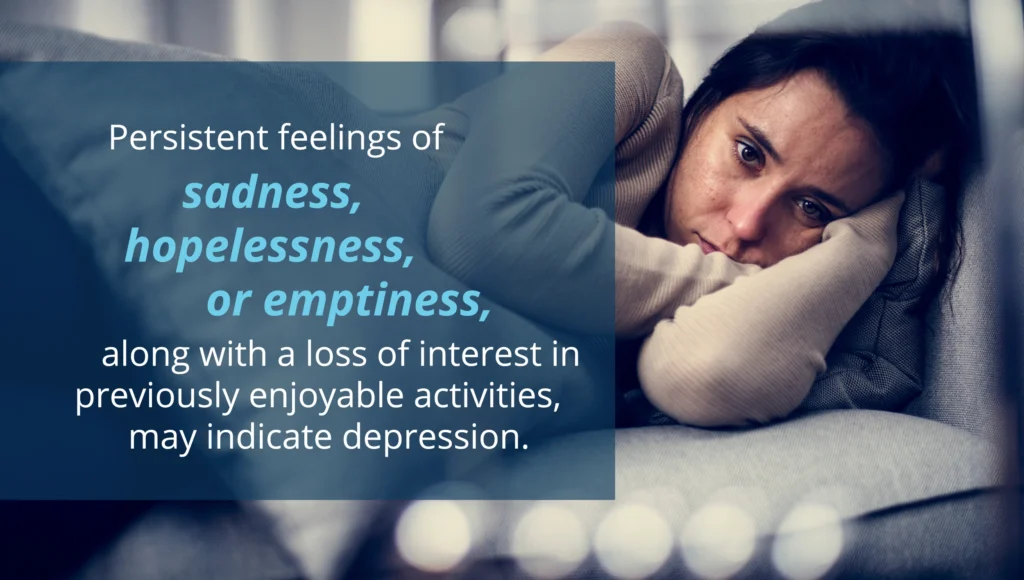Many individuals silently struggle with depression, a complex mental health condition that can manifest in various ways, impacting emotions, thoughts, and behaviors. Exploring the signs, symptoms, and factors that can contribute to depression and providing valuable insights for those seeking answers can support their journey to better mental health.
Key Takeaways
Depression is not a sign of weakness but a real medical condition that can affect anyone. Here’s what you need to know:
- Persistent feelings of sadness, hopelessness, or emptiness, along with a loss of interest in previously enjoyable activities, may indicate depression.
- Seeking professional help and talking to a therapist can provide valuable support and guidance in managing depression.
- Engaging in self-care practices, maintaining social connections, and incorporating regular exercise can assist in coping with depressive symptoms.
Contact The Haven Detox-New England at (844) 933-4145 for more information and personalized medical assistance to overcome mental health disorders.
Understanding Depression
Depression is a common and complex mental health condition characterized by persistent feelings of sadness, hopelessness, and a lack of interest or pleasure in daily activities. It can significantly impact a person’s emotional and physical well-being.
Understanding the causes and types of depression is essential for effective diagnosis and treatment.
Causes
Biological Factors: Genetic predisposition can increase the risk of depression. Chemical imbalances in the brain, particularly involving neurotransmitters like serotonin, also play a significant role.
Environmental Triggers: Trauma, abuse, or major life events such as loss, divorce, or financial stress can trigger depressive episodes.
Neurological Factors: Brain structure and function abnormalities can contribute to depression. These alterations affect mood regulation and emotional processing.
Medical Conditions: Certain medical conditions, like chronic illnesses, hormonal imbalances, or chronic pain, can be linked to depressive symptoms.
Types
Major Depressive Disorder (MDD): Characterized by persistent sadness, loss of interest, and difficulty in daily functioning, MDD is the most common form of depression.
Bipolar Disorder: Alternates between episodes of depression and mania or hypomania. Individuals or young people with bipolar disorder experience extreme mood swings.
Persistent Depressive Disorder (Dysthymia): A milder but chronic form of depression that lasts for at least two years, with ongoing feelings of sadness.
Seasonal Affective Disorder (SAD): Occurs during specific seasons, often in the winter, due to reduced sunlight exposure.
Depression Vs. Sadness
Sadness and depression are distinct emotional states, differing in their duration, intensity, and underlying causes. Sadness is a normal, temporary emotional response to a specific event or situation, such as a loss, disappointment, or stress.
It typically subsides as the situation improves or with time. On the other hand, depression is a pervasive and prolonged mental disorder characterized by persistent feelings of hopelessness, worthlessness, and a loss of interest in activities.
It often lacks a clear trigger and can persist for weeks, months, or even years, significantly impairing daily functioning. While sadness is a common and manageable emotion, major depression requires medical help and support from healthcare providers to alleviate its symptoms.
Symptoms of Depression
Depression symptoms can be categorized into physical, psychological, and behavioral aspects.
Here are some common symptoms of depression:
Physical Symptoms
- Fatigue and low energy
- Sleep disturbances
- Appetite changes
- Unexplained aches and pains
- Headaches and digestive issues
Emotional Symptoms
- Prolonged sadness or emptiness
- Irritability and restlessness
- Loss of interest or pleasure
- Feelings of hopelessness
- Concentration problems
- Suicidal thoughts
Behavioral Symptoms
- Social withdrawal
- Neglecting responsibilities
- Avoidance of once-enjoyed activities
- Increased substance use
- Self-harm or suicidal attempts
Doubt to Diagnosis: Depression Self-Assessment Quiz

A depression questionnaire is a basic self-assessment tool to help you consider whether you might be experiencing some common symptoms of clinical depression.
Answer each question honestly with “Yes” or “No.”
- Have you been feeling constantly sad, down, or low in mood for most of the day, nearly every day, for at least two weeks?
- Have you lost interest or pleasure in activities that you once enjoyed?
- Have you experienced significant changes in your appetite or weight in the past few weeks or months?
- Do you have trouble staying asleep, or have you been sleeping excessively?
- Have you felt unusually tired or lacking energy, even after a full night?
- Do you often feel worthless, guilty, or have excessive feelings of self-blame?
- Is it difficult for you to concentrate, make decisions, or focus on tasks you used to handle easily?
- Have you had thoughts of death or suicide, or have you made any suicide attempts?
- Do you isolate yourself from friends and family, or have you noticed decreased social interactions?
- Are you experiencing physical symptoms such as headaches, stomach aches, or other unexplained pains that don’t have a clear medical cause?
If you answered “Yes” to most of these questions and are experiencing a significant and prolonged unpleasant change in your daily life, seek help from a mental health professional to develop an appropriate treatment plan if needed.
Treatment for Depression
Treatment for depression can vary depending on the severity of the condition, individual factors, and personal preferences. It’s essential to consult with a mental health professional to determine the most suitable treatment plan.
Here are some common effective treatments for depression:
Psychotherapy (Talk Therapy)
Psychotherapy, or talk therapy, is a fundamental treatment for manic depression. Some popular therapeutic approaches include cognitive behavioral therapy (CBT), interpersonal therapy (IPT), and psychodynamic therapy.
In therapy, individuals work with a trained therapist to identify negative thought patterns and behaviors, develop coping ways, and better understand their feelings and emotions. Therapy can be conducted one-on-one, in groups, or with family members, depending on the specific needs.
Medication
In cases of moderate to severe depression, medication may be prescribed by a doctor or psychiatrist. Antidepressant medications, such as selective serotonin reuptake inhibitors (SSRIs), serotonin-norepinephrine reuptake inhibitors (SNRIs), or other classes of antidepressants, can help regulate brain chemistry and alleviate depressive symptoms.
Working closely with a healthcare provider is crucial to finding the right medication and dosage that suits an individual’s needs.
Lifestyle Changes
Adopting a healthy lifestyle can be essential to managing depression. Regular exercise, a balanced diet, and adequate sleep are crucial for improving mood and overall well-being. Reducing or avoiding alcohol and substance use is also advisable, as these can exacerbate depression symptoms.
Social Support
Building a strong support network is vital in treating depression. Talking to friends and family about your feelings can provide emotional support, and knowing you’re not alone in your struggle can be comforting.
Joining mental health or substance use disorders support groups or seeking out peer-led initiatives can also be beneficial.
Mindfulness and Relaxation Techniques
Mindfulness meditation, yoga, and other relaxation techniques can help young and older adults manage their symptoms by reducing stress and anxiety and promoting a sense of calm. Mindfulness practices can improve self-awareness and emotional regulation, which are essential in managing depression.
Self-Help Strategies
Additional resources or self-help strategies like journaling, engaging in hobbies, setting realistic goals, and maintaining a routine can complement professional help. These strategies can provide structure and help people quit substance abuse and gain control over their lives.
Frequently Asked Questions (FAQ)
What are the symptoms of depression?
Common symptoms of postpartum depression include persistent sadness, loss of interest in activities, changes in appetite and sleep patterns, fatigue, feelings of worthlessness, difficulty concentrating, and thoughts of self-harm or suicide.
Physical symptoms like aches and pains can also occur. Diagnosis and treatment should be sought if these symptoms persist.
What are the top 3 symptoms of depression?
The top three symptoms of depression are persistent sadness or low mood, loss of interest or pleasure in activities (anhedonia), and fatigue or low energy. These core symptoms often last most of the day and can significantly impact daily functioning.
Other common symptoms include changes in appetite or weight, sleep disturbances, feelings of worthlessness or guilt, and difficulty concentrating.
How do I know if I am depressed or just sad and worried?
Distinguishing between sadness, worry, and depression can be challenging. Depression typically involves:
- Persistent, intense feelings of sadness.
- Loss of interest in once-enjoyed activities.
- Physical symptoms like changes in appetite and sleep patterns.
If these symptoms persist for at least two weeks, it may indicate depression. It’s essential to consult a healthcare professional for a proper diagnosis and treatment options for managing your feelings.
Embrace Mental Wellness With The Haven Detox-New England
Break free from the grip of depression and embark toward a brighter and healthier tomorrow with The Haven Detox-New England.
Explore the transformative potential of our residential treatment program, designed to empower you in your battle against mental health disorders. Our expert therapists excel in creating personalized coping strategies, empowering you to reclaim your life from the clutches of depressive symptoms.It’s time to break free from the shadows of despair. Contact us at (844) 933-4145, and let us help you find your way back to happiness.
Verify Insurance
Let’s get you or a loved one help with a few simple steps.




